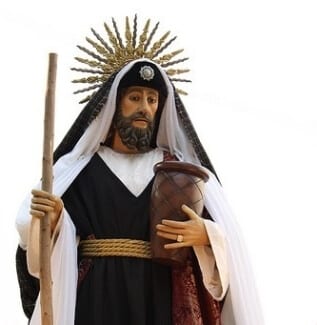
How is it that a tiny acorn can become a mighty oak tree? How does medicine we take know what part of the body to go to? How does the invisible force of electricity work? There is so much of life that we can’t begin to understand and yet they are realities.
In our pride, we humans think that if we can’t understand something, then it must not exist. Does this go back to the fundamental lie imposed on us by the serpent—that if we disobey God we will become as smart as He is?
Today we read about a conversation Jesus had with one of the religious leaders of Israel. He belonged to the Pharisee sect and prided himself, I’m sure, in knowing just about everything there is to know about God. Sensing that Jesus had something he didn’t know about, this man, Nicodemus, sneaked over to see him one night (John 3:7-15).
“Jesus said to Nicodemus: ‘You must be born from above. The wind blows where it wills, and you can hear the sound it makes, but you do not know where it comes from or where it goes; so it is with everyone who is born of the Spirit.’”
We know there is such a thing as the wind. Suddenly we feel it on our skin coming out of nowhere. Or we hear a whistling noise coming through the window or see a huge tree across the street bending toward the ground. Wind is a reality that exists, yet we can’t understand it.
So God “blows” the wind of the Holy Spirit into the heart of a human being. This person is suddenly “fertilized” with God. A new birth takes place inside. No one sees it happen and yet it totally changes the life of the person who is touched by it. The Holy Spirit, Jesus explains, is like the wind. It is beyond our ability to understand, control, or explain. Yet it is the greatest of all gifts.
“Nicodemus answered and said to him, ‘How can this happen?’ Jesus said to him, ‘You are a teacher of Israel and you do not understand this?’”
Nicodemus wanted Jesus to explain to him how this rebirth in the Holy Spirit can take place. Maybe if Jesus would boil it down to terms that the limited mind of Nicodemus could understand, he would accept it and follow Jesus. First and foremost, for a teacher of Israel is the need for humility—the admission that the things of God and the works of God are infinitely beyond his comprehension.
Jesus continued:
“Amen, amen, I say to you, we speak of what we know, and we testify to what we have seen, but you people do not accept our testimony. If I tell you about earthly things and you do not believe, how will you believe if I tell you about heavenly things?”
Jesus was not speaking out of religious theory. He knew God and knew what being reborn was all about. Moreover, he worked signs and wonders as well as taught with authority to give proof that he was sent by God. And yet the stubborn religious “know-it-alls” would not buy into what he said or the challenges that he put forth.
Being part of an age in which human reasoning is sometimes deified, we risk the danger of believing only what we understand. In our pride we pick and choose our beliefs, thus buy into the fundamental lie of the Evil One. Let us yield to new birth even though we don’t understand it.
